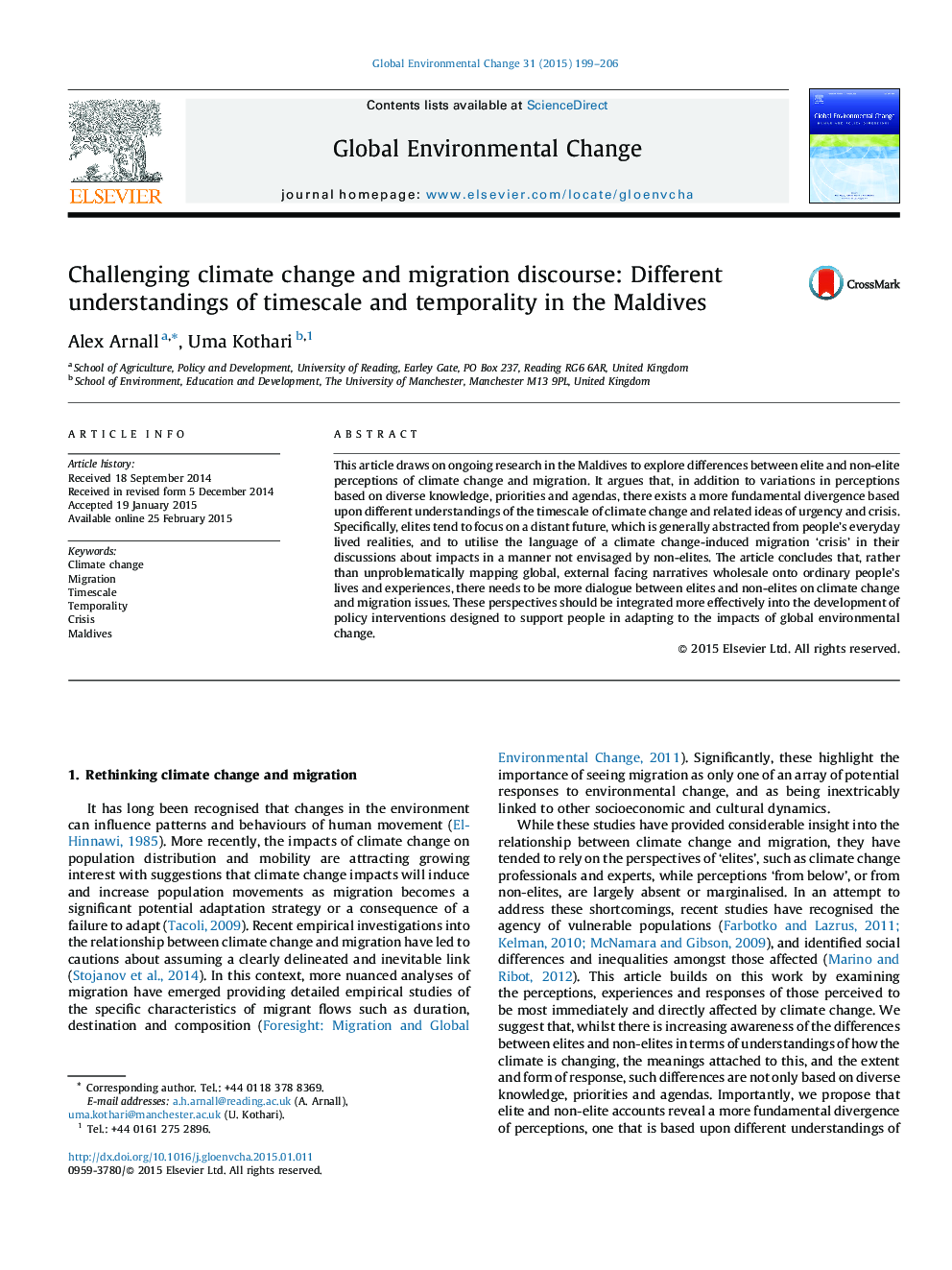| Article ID | Journal | Published Year | Pages | File Type |
|---|---|---|---|---|
| 7470076 | Global Environmental Change | 2015 | 8 Pages |
Abstract
This article draws on ongoing research in the Maldives to explore differences between elite and non-elite perceptions of climate change and migration. It argues that, in addition to variations in perceptions based on diverse knowledge, priorities and agendas, there exists a more fundamental divergence based upon different understandings of the timescale of climate change and related ideas of urgency and crisis. Specifically, elites tend to focus on a distant future, which is generally abstracted from people's everyday lived realities, and to utilise the language of a climate change-induced migration 'crisis' in their discussions about impacts in a manner not envisaged by non-elites. The article concludes that, rather than unproblematically mapping global, external facing narratives wholesale onto ordinary people's lives and experiences, there needs to be more dialogue between elites and non-elites on climate change and migration issues. These perspectives should be integrated more effectively into the development of policy interventions designed to support people in adapting to the impacts of global environmental change.
Related Topics
Life Sciences
Environmental Science
Environmental Science (General)
Authors
Alex Arnall, Uma Kothari,
